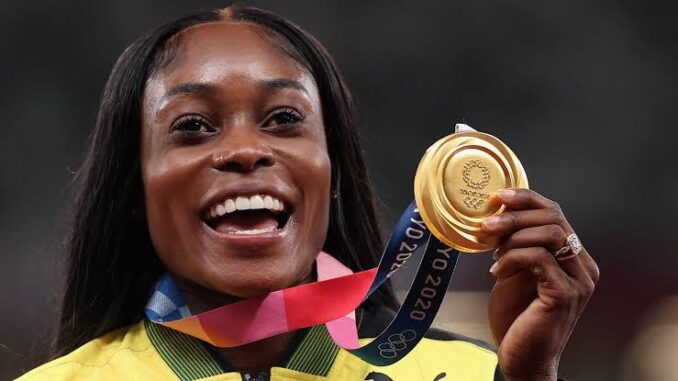
World Athletics has announced it will become the first international federation to award prize money at the Olympic Games.
The global governing body said a total prize pot of $2.4m (£1.9m) has been made available for this summer’s Olympics in Paris, with gold medallists receiving $50,000 (£39,400).
World Athletics has made history by becoming the first international sports federation to offer prize money for Olympic achievements. The governing body announced that it will award a total prize pool of $2.4 million (£1.9 million) at the 2024 Olympic Games in Paris. In a groundbreaking move, athletes who win gold medals in each of the 48 athletics events will receive $50,000 (£39,400) as part of this initiative.
This landmark decision marks a significant shift in how Olympic athletes are rewarded for their performances. Traditionally, Olympic medalists do not receive prize money directly from the International Olympic Committee (IOC), though many national federations and sponsors do provide financial bonuses. World Athletics’ move challenges this long-standing tradition, aiming to more directly recognize and reward the dedication and achievements of athletes at the highest level.
World Athletics president Lord Sebastian Coe described the initiative as a “pivotal moment” for the sport and for the broader Olympic movement. “For too long, athletes have shouldered the burden of preparing for and competing in the Olympics without any direct financial return from the event itself,” Coe said. “This is about acknowledging the immense commitment of the athletes and making sure that their excellence is properly rewarded.”
The $2.4 million prize pool for Paris 2024 will only cover gold medallists, but the federation has stated that it plans to expand the scheme to include silver and bronze medallists at the 2028 Olympics in Los Angeles. This phased rollout is designed to ensure the initiative is sustainable and well-integrated into the Olympic model.
Each gold medal-winning event, whether individual or team, will receive the same $50,000 prize. For relay events, the money will be divided equally among team members. This approach underscores World Athletics’ emphasis on fairness and equality across all disciplines.
The move has been met with widespread approval from the athletics community. Many athletes have long called for better financial recognition, particularly given the intense training, long seasons, and personal sacrifices required to compete at the elite level. The prize money is expected to provide a morale boost and potentially enhance competition, as athletes may feel their efforts are more tangibly rewarded.
However, the decision is not without controversy. Critics argue that introducing prize money could shift the focus of the Olympics away from amateurism and pure sporting spirit. There is also concern about the precedent this sets, with other federations potentially feeling pressured to follow suit, despite financial constraints.
Nonetheless, World Athletics’ move is likely to accelerate conversations around athlete compensation and the commercial realities of modern sport. As athletes increasingly become global icons and revenue-generators, particularly through sponsorships and media rights, the call for equitable financial distribution has grown louder.
In conclusion, World Athletics’ introduction of prize money at the Paris Olympics represents a bold and progressive step toward recognizing the value of athletes’ achievements on the world’s biggest stage. While the decision may spark debate within the Olympic community, it undeniably sets a new precedent—one that puts the athletes at the center of the Olympic reward structure.



Be the first to comment